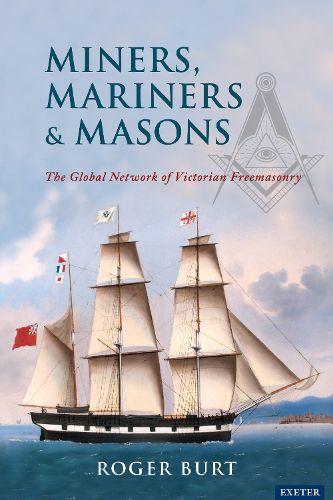Readings Newsletter
Become a Readings Member to make your shopping experience even easier.
Sign in or sign up for free!
You’re not far away from qualifying for FREE standard shipping within Australia
You’ve qualified for FREE standard shipping within Australia
The cart is loading…






This title is printed to order. This book may have been self-published. If so, we cannot guarantee the quality of the content. In the main most books will have gone through the editing process however some may not. We therefore suggest that you be aware of this before ordering this book. If in doubt check either the author or publisher’s details as we are unable to accept any returns unless they are faulty. Please contact us if you have any questions.
Freemasonry played a major role in the economic and social life of the Victorian era but it has received very little sustained attention by academic historians. General histories of the period hardly notice the subject while detailed studies mainly confine themselves to its origins in the early eighteenth century and its later institutional development. This book is the first sustained and dispassionate study of the role of Freemasonry in everyday social and economic life: why men joined, what it did for them and their families, and how it affected the development of communities and local economies.
$9.00 standard shipping within Australia
FREE standard shipping within Australia for orders over $100.00
Express & International shipping calculated at checkout
This title is printed to order. This book may have been self-published. If so, we cannot guarantee the quality of the content. In the main most books will have gone through the editing process however some may not. We therefore suggest that you be aware of this before ordering this book. If in doubt check either the author or publisher’s details as we are unable to accept any returns unless they are faulty. Please contact us if you have any questions.
Freemasonry played a major role in the economic and social life of the Victorian era but it has received very little sustained attention by academic historians. General histories of the period hardly notice the subject while detailed studies mainly confine themselves to its origins in the early eighteenth century and its later institutional development. This book is the first sustained and dispassionate study of the role of Freemasonry in everyday social and economic life: why men joined, what it did for them and their families, and how it affected the development of communities and local economies.